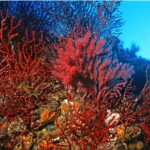Originally published on Ecowatch by John Judge

It’s a different kind of World Environment Day this year. In prior years, it might have been enough to plant a tree, spend some extra time in the garden, or teach kids the importance of recycling. This year we have heavier tasks at hand. It’s been months since we’ve been able to spend sufficient time outside, and as we lustfully watch the beauty of a new spring through our kitchen’s glass windows, we have to decide how we’ll interact with the natural world on our release, and how we can prevent, or be equipped to handle, future threats against our wellbeing.
When we emerge from our homes, it will be into a healthier planet than we left. Fewer cars, trucks, and planes have caused a significant reduction in pollution and an unprecedented improvement in air quality—so while we’ve been sick, the planet’s been healing. The question is how we can continue to allow the Earth to heal itself, and how we should treat it going forward.
When we rebuild our lives and economy, we need to embrace the opportunities of rebirth and build the foundation of a stronger ecosystem. The call to action is multifaceted. At its core it requires a commitment to conservation stewardship. Today our thoughts and our talking heads mull over the virus all day every day, but after this it will be easy to return to the divisive, polarized, and xenophobic conversations we’ve stepped away from. We need to eschew what may feel like a natural impulse and instead become what I call “Outdoor Citizens”—champions of the natural world who realize we are not just citizens of our cities, states, and countries, but of planet Earth, which nurtures and protects us even when our unique governments cannot.
A sustainable plan of action to preserve our planet and human health in the process requires a robust public-private collaboration by citizens and officials on local, state, and federal levels. For this to happen, we need to vote into office politicians whose environmental agendas, especially in relation to their views on the fossil fuel industry, align with our own. We also need an outdoor-centric economy underscored by investors who fund sustainability initiatives, and we need manufacturers who agree to abide by environmentally friendly production practices.
Our time working from home has shown our extraordinary ability to innovate and craft new technology. This wonderful quality can be used to put the levers of science, conservation stewardship, and data collection in each of our hands. Hardware, software, apps, wireless 5G communication, and the Internet of Things can empower all Outdoor Citizens to contribute to the cause of protecting our planet, whether it be through aggregating data, fostering local and global connections to strategize and implement environmental protections, or giving us the tools we need to monitor and lower our energy consumption and carbon footprint.
World Environment Day was put into motion almost fifty years ago by the United Nations as a response to a multitude of environmental threats. The same year it was established, in 1972, a variety of countries around the world passed legislation protecting the environment. New Zealand passed its Clean Air Act. The Wildlife Protection Act was enacted by India. Here in the US, Congress passed the Marine Mammal Protection Act, the first law of its kind in our country. Today with the growing threat of climate change, we again need active change.
As we continue to adapt to our new normal, post-pandemic, and as our scientists race to find ways to treat the virus, I am encouraged and excited by the knowledge that people will exit their homes with a newfound appreciation for the joy of being outdoors, and that we as a society are looking to see what we can do better. We stand on the shoulders of those who were the champions of the outdoors, and now it’s our turn to take bold action. The future of our planet and humanity will be defined by what we do today, and future generations will judge us on this. Let’s strive to become the greatest generation of conservationists. Let’s strive to be Outdoor Citizens.
John Judge is the president and CEO of the Appalachian Mountain Club, America’s oldest conservation and outdoors organization, and the author of The Outdoor Citizen: Get Out, Give Back, Get Active.













